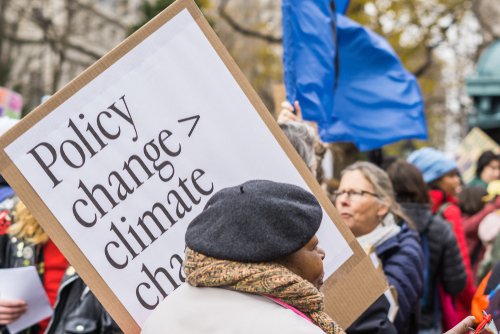Brussels (Brussels Morning) The political and cultural dynamics of the Middle East have historically created issues and delays for any change on a regional level. Climate policy has been no different. However, with current climate issues reaching crisis level and a growing need for solutions at the humanitarian level, is it possible that the divided political views and cultural beliefs are being put aside for a greater cause?
One hopeful step forward is the first-ever MENA (Middle East and North Africa) Climate Week 2022. The week-long event, to be held in Dubai from February 28th to March 3rd, 2022, will bring together government ministers, scientists, business people, and others from across the region to develop a regional action plan on climate change. This comes at a time when many middle east countries are finally waking up to the seriousness of climate change and its potential impacts on security, water availability, and food production.
The Middle East is one of the most water-scarce regions in the world. With growing populations, diminishing resources, and a changing climate, access to safe water is increasingly becoming a challenge. This is particularly true in Jordan and Lebanon, which are already hosting refugees from Syria and Iraq. The crisis is even more dire in places like Yemen. It is estimated that 17 million Yemenis, more than 60% of the population, are in need of humanitarian assistance, and over 8 million people do not have access to clean water.
Climate change will only exacerbate these problems. A 2016 study by the World Bank found that if global warming exceeds 2°C, the number of people in the region facing water stress will increase from 55 million today to about 90 million by 2050. Inaction on climate change could lead to widespread food shortages and increased migration as people flee their homes searching for food and water.
There is growing recognition among policymakers in the region that climate change is a real and pressing issue. In light of this, many middle east countries have been working together to develop regional policies on climate change and join the global conversation. Since 2020, we have witnessed more countries enter the conversation by signing and endorsing the Paris Climate Agreement. Iran, Libya, Yemen, and Eritrea are the remaining four countries that have yet to join the table.
With the upcoming MENA Climate Week 2022, many hope the region can craft more localized dialog and solutions. Unification around climate comes down to trust, which has been lacking in the Middle East for a very long time. These countries do not trust outside influence from the West or other regions. Further, the complex cultural and political differences have created a lack of trust in the region and within many of their own borders for centuries. Unification will come from a grassroots level but not be easy. Perhaps MENA Climate Week 2022 will be the bridge needed for bringing everyone together for the common good.




